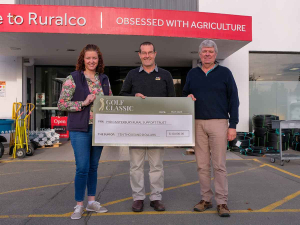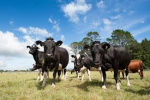Federated Farmers say many New Zealand dairy farmers are “going back to basics” as the downward trend in global dairy prices continues.
The latest Global Dairy Trade (GDT) auction showed a greater than expected drop across the range of dairy products, which will affect both farming and the rural communities.
“Farmers are picking up on these price signals and doing things differently this year. This is reflected in the higher than usual culling of dairy cows as farmers look to decrease the number of mouths they need to feed,” says Federated Farmers dairy chair Andrew Hoggard.
“Feeding cows grass on their farm is cheaper than buying in feed and so many farmers are going back to basics. This change is evident in the reduced imports of feed such as PKE.”
Hoggard says the recent winter weather experienced across the lower North Island and the South Island and this ‘back to basics’ tactic, suggests milk production in New Zealand is unlikely to increase this season, contrasting with the last couple.
“With the tightening of the belt, farmers do not need or want extra costs. If central government thinks it can shunt costs on such things as rural roading onto local government, then they need to think again, as all these costs then pile up at the farmer’s door.
“Maybe this could have been possible or more palatable in a good payout year, but it certainly isn’t when things look like they do now.
"I am pleased that farmers have spent a heap of money on environmental stuff during the good years. Now we’re back to basics, thankful for the improvements we have made”, adds Hoggard.











